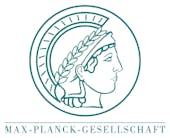Nicole Boivin obtained her BSc in Cellular, Molecular and Microbial Biology from the University of Calgary in 1992. Surrendering to a long-term interest in archaeology, she later began graduate studies in the Department of Archaeology at the University of Cambridge, earning an MPhil in 1996 and a PhD in 2001. Following post-doctoral fellowships in Cambridge and Paris, she took up a Senior Research Fellowship at the University of Oxford, where she is also a fellow of Jesus College. From 2016-2022, Nicole Boivin was Director at the Max Planck Institute for the Science of Human History 2016, where she established the Department of Archaeology. She is currently based at the Max Planck Institute of Geoanthropology, and is an Honorary Professor at the University of Queensland, and Research Affiliate at Griffith University, Australia. She is a Fellow of the Society of Antiquaries.
Nicole Boivin’s archaeological research is multi-disciplinary, and cross-cuts the traditional divide between the natural sciences and humanities. She has undertaken pioneering research in Asia and Africa, exploring a broad range of issues through field, laboratory and theoretical applications – from human migrations out of Africa in the Late Pleistocene, to cognition, rock art and material culture. Her ERC-funded Sealinks Project investigated the emergence of long-distance trade and connectivity in the Indian Ocean, and its relationship to processes of biological exchange and translocation. She is interested in human history over the long-term, and the broad patterns of migration, interaction and environmental manipulation that have shaped the human story. Her current work seeks to explore the entanglement of biological, cultural and ecological processes from prehistory to the present.
Experience
-
–presentDirector of the Department of Archaeology, Max Planck Institute for the Science of Human History
- Jena, Germany
- Website
- @NicoleLBoivin
- Article Feed
- Joined


